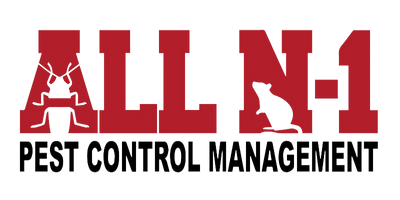Imagine your peaceful home invaded by tiny, persistent pests that not only irritate your beloved pets but also pose a threat to your family’s health and comfort. Flea infestations in Cypress and Katy, TX, can quickly turn into a nightmare if left unchecked.
Understanding Flea Habits and Behavior
Fleas are not just a nuisance; they are tiny but formidable foes in the world of household pests. These minuscule insects have incredible jumping abilities, which allow them to move swiftly between hosts or within their environment. Understanding their habits is key to eradicating them effectively. Fleas thrive in warm, humid environments, making Texas an ideal breeding ground. They feed on the blood of mammals, including your pets and even humans, causing discomfort and potential health issues.
One fascinating aspect of fleas is their life cycle. From egg to larva to pupa and finally adult, each stage presents unique challenges for eradication. Flea eggs can remain dormant for months, ready to hatch when conditions are favorable. Their resilience and rapid reproductive rate make flea control a continuous battle. By comprehending their behavior, you can strategize ways to disrupt their life cycle and prevent infestations.
To combat fleas effectively, it’s crucial to target not only the adult fleas but also their eggs and larvae. Implementing a multifaceted approach that includes treating your pets, home, and yard is essential for thorough eradication. By addressing all life stages of fleas simultaneously, you can prevent reinfestation and protect your household from these persistent pests.
Effective Flea Prevention Methods
Preventing flea infestations requires a proactive approach to safeguarding your home and pets. Regular grooming and inspecting your pets for fleas is the first line of defense. Using flea preventatives recommended by your veterinarian can help protect your furry friends from these blood-sucking parasites. Additionally, maintaining a clean living environment by vacuuming regularly, especially in pet areas, can help eliminate eggs and larvae before they hatch.
Outdoor flea prevention is equally important, especially in Texas where warm weather provides an ideal habitat for fleas. Keeping your yard tidy, mowing the lawn regularly, and removing debris where fleas might thrive can significantly reduce the risk of infestations. Implementing natural deterrents like cedar chips or nematodes can also repel fleas effectively without harsh chemicals.
Remember, prevention is always easier and more cost-effective than dealing with a full-blown flea infestation. By incorporating these prevention methods into your routine, you can create a hostile environment for fleas and protect your home and pets from these persistent pests.
Recognizing Signs of Flea Infestations
Detecting a flea infestation early is crucial for effective control. Keep an eye out for common signs such as excessive scratching and grooming in pets, red or irritated skin, flea dirt (black specks resembling pepper) on pet fur or bedding, and actual sightings of jumping fleas. If you suspect a flea problem, a thorough inspection of your pets and living areas is essential to confirm the infestation.
Beyond pets, fleas can also target humans, especially in severe infestations. If you notice unexplained bites on your skin, especially around the ankles or legs, it could be a sign of fleas in your home. Prompt action is crucial to prevent the infestation from spreading and causing further discomfort to your family and pets.
Educating yourself about the signs of flea infestations equips you to act swiftly at the first indication of trouble. By remaining vigilant and knowing what to look for, you can address flea problems early and minimize the impact on your household.
Safe and Natural Flea Remedies
For those seeking natural alternatives to chemical flea treatments, several safe and effective remedies can help combat infestations. Essential oils like cedarwood, lavender, and peppermint have natural flea-repellent properties and can be diluted and applied to pet bedding or collars. Similarly, diatomaceous earth, a fine powder made from fossilized algae, is harmless to pets and humans but effectively desiccates fleas and their larvae.
Another natural approach is utilizing flea-repelling plants in your garden or home. Herbs like rosemary, sage, and mint can act as natural deterrents for fleas. Planting these fragrant herbs in outdoor spaces or using their essential oils in homemade cleaners can help keep fleas at bay without harsh chemicals.
While natural remedies can be effective for mild infestations or as preventive measures, severe flea problems may require professional intervention. Effective collaboration with pest control experts ensures thorough eradication while prioritizing the safety of your family and pets.
Professional Flea Extermination Services
In severe cases of flea infestations, enlisting the help of professional exterminators is often the most efficient solution. Pest control experts have the knowledge, experience, and specialized equipment to eradicate fleas effectively and prevent future outbreaks. By conducting thorough inspections, targeted treatments, and follow-up visits, professional exterminators ensure long-lasting relief from these persistent pests.
Professional flea extermination services not only address the current infestation but also provide recommendations for preventing future occurrences. Their expertise in locating hidden flea populations, such as within carpets, furniture, and wall voids, allows for comprehensive treatment that reaches all potential breeding grounds. With professional assistance, you can rest assured that your home is free from fleas and enjoy a pest-free environment once again.




